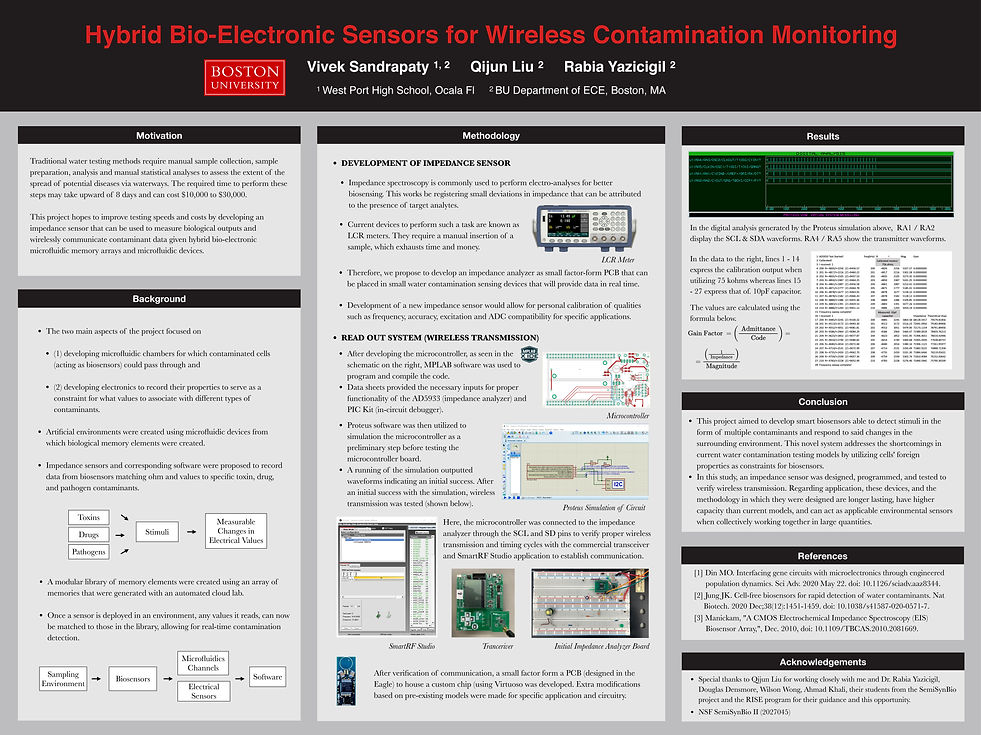Boston University RISE Internship
I was accepted into the BU RISE Summer Internship Program (~6% acceptance rate) where I worked alongside graduate students to develop and test hybrid bio-electronic microfluidic based contamination sensors that may revolutionize contamination monitoring.
My individual focus was the electrical engineering aspect of the project—developing the electronic contamination sensors.
The overall project aims to develop smart biosensors able to detect stimuli such as toxins, drugs, and pathogens and respond to changes in the surrounding environment. This novel system addresses the shortcomings in current water contamination testing models by utilizing cells' foreign properties as constraints for biosensors.
By creating artificial environments using microfluidic devices and leveraging the memory of complex genetic systems, technology was developed to "remember" certain stimuli that they have been exposed to artificially. This serves as the integration platform for testing, refining, and deploying memory biosensors. These memory elements will be stored in a modular library and used to create custom-design semiconductor-based electronics that measure biological outputs. Finally, wireless communication was used to import results and respond accordingly.
An aquatic environment that allows sampling and stimuli to serve as biosensors was developed for testing. Microfluidic testing patterns in conjunction with sensors such as for fluorescence, luminescence, and impedance, along with software to regulate control, scheduling, and feedback, were developed.
These devices, and the methodology in which they were designed, are more vigorous, longer lasting, have higher capacity than current models, and can act as applicable environmental sensors when collectively working together in large quantities.
Project Concept
.jpg)